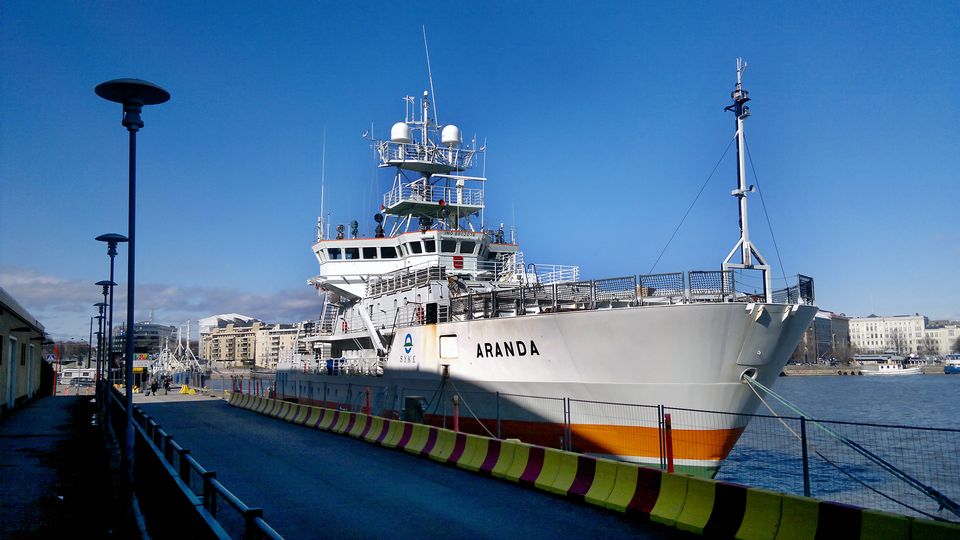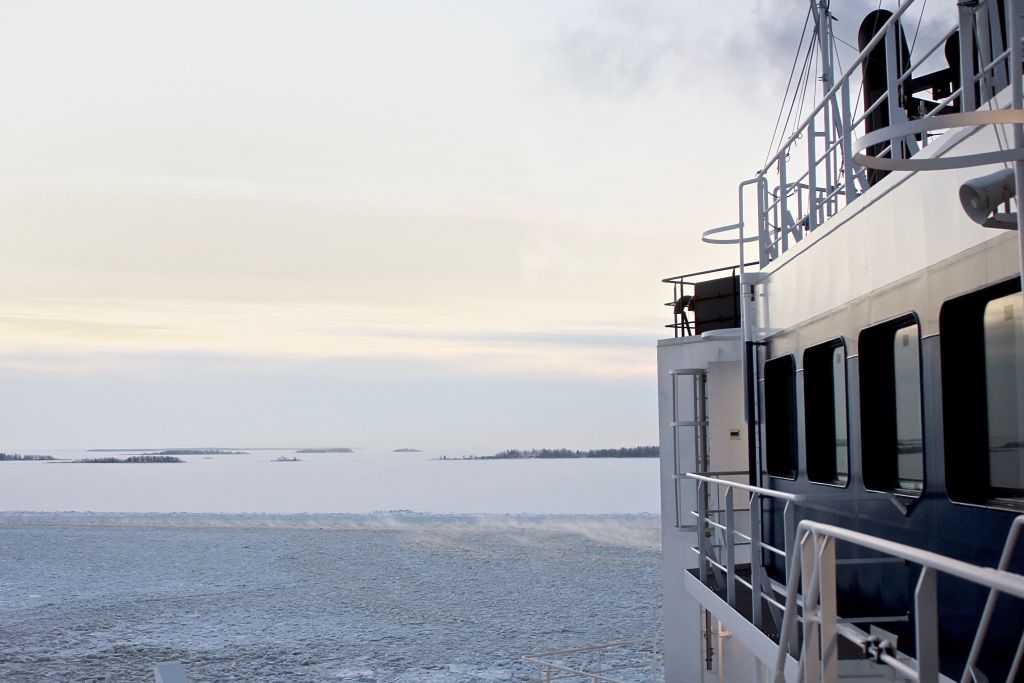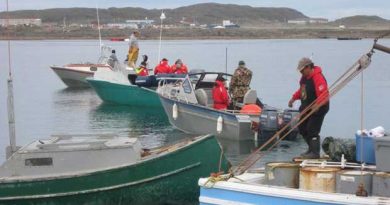Finland investigates oil leak risks from Baltic Sea shipwrecks

The Finnish Environment Institute (SYKE) has sent a research ship to investigate two shipwrecks seen as potential environmental risks.
This week the research vessel Aranda has been checking on the condition and position of the wrecks, which have lain on the floor of the Archipelago Sea in southwest Finland for more than 30 years. The aim is to pump out the oil that still remains in the vessels to prevent it from leaking out into the sensitive Baltic environment.
The ships sank in the 1980s in the Skiftet, a strait in the territorial waters of the autonomous Åland Islands. They lie at a depth of 30-40 metres, and have been identified as problem wrecks by Åland authorities due to the risk of oil leaks.
Researchers on the Aranda studied the wrecks’ posture on the seabed and took water and sediment samples from their surroundings. Divers also took photos of the ships, which will be used to generate 3D models.
SYKE will pore over the collected material to determine if it is feasible to remove the oil from the ships’ fuel tanks.
Ministry aims to clean up Finnish waters
The effort is part of an Environment Ministry programme to step up water protection. Besides removing oil from wrecks, it is intended to lower the nutritional load in Finland’s Baltic and inland waters related to agriculture and forestry, to rehabilitate degraded waterways and to reduce harmful substances in urban water supplies.

The Baltic Sea is considered one of the world’s most polluted. Connected to the North Sea only by a narrow strait between Denmark and Sweden, its water is brackish and relatively shallow, making it particularly vulnerable to pollution. Oil tankers make up about one fifth of the Baltic’s busy shipping traffic.
The Aranda, an ice-reinforced research vessel based in Helsinki, has been operated by SYKE for 30 years. At 66 metres, it has facilities for up to 27 working scientists. Last year a major refit and modification was completed in Rauma, during which its sound level and emissions were lowered among other upgrades.
Related stories from around the North:
Canada: Equipment failure causes heating system leak in Rankin Inlet, Northern Canada, CBC News
Finland: Helsinki University christens new vessel for Baltic Sea research, Yle News
Norway: Radiation seeping out from 30-year-old nuclear-sub wreck in Norwegian Sea, The Independent Barents Observer
Russia: Russian nuclear corporation says 5 staff members died in last week’s “liquid propulsion system” blast, The Independent Barents Observer
Sweden: Warnings in Sweden about dangerous bacteria in Baltic Sea, Radio Sweden
United States: Environmental groups welcome ban on dirty fuel by Arctic cruise operators, Radio Canada International
United Kingdom: UK’s new flagship polar research vessel officially named Sir David Attenborough, Eye on the Arctic



